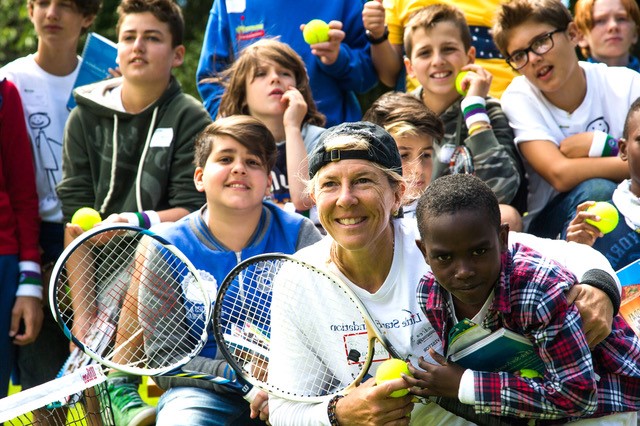Empowering Future Champions: How Sports Programs for Needy Children Benefit Society


Sports programs for needy children are more than just a recreational activity; they are a powerful tool for social change and personal development. These programs offer countless benefits, ranging from improved physical health to enhanced social skills, and play a crucial role in shaping the future of disadvantaged youth. By investing in sports programs for children in need, we not only foster individual growth but also strengthen communities and contribute to a more equitable society.
Building Physical Health
One of the most immediate benefits of it for needy children is the improvement in physical health. Regular participation in sports helps combat childhood obesity, a growing concern in many communities. Activities such as soccer, basketball, and swimming provide essential cardiovascular exercise, build muscle strength, and promote overall fitness. For children who may not have access to safe play areas or healthy food options, sports can serve as a critical avenue for maintaining a healthy lifestyle.
Furthermore, this encourages the development of good habits that can last a lifetime. By introducing children to regular exercise and physical activity, these programs lay the foundation for a healthy lifestyle that can help prevent chronic diseases in the future.
Promoting Mental Well-Being
Sports programs also significantly enhance mental well-being. Participation in sports helps children develop resilience, self-discipline, and stress management skills. The challenges faced on the field—such as learning to cope with losses, working as a team, and striving for personal improvement—mirror the obstacles they may encounter in other areas of life. These experiences foster a growth mindset, which is crucial for overcoming obstacles and achieving personal goals.
Moreover, engaging in physical activity releases endorphins, which can improve mood and reduce symptoms of anxiety and depression. For children from disadvantaged backgrounds who may face additional emotional and psychological stresses, sports can provide a much-needed outlet for positive expression and emotional relief.
Fostering Social Skills and Teamwork
These are a valuable platform for children to develop essential social skills. Through teamwork, children learn how to communicate effectively, collaborate with others, and build lasting friendships. The structured environment of a sports team encourages children to work together towards common goals, which helps them understand the importance of cooperation and mutual support.
Additionally, it often brings together children from diverse backgrounds, promoting inclusivity and cultural understanding. By interacting with peers from different social and economic environments, children learn to appreciate diversity and build empathy. These experiences are vital for fostering a sense of community and social cohesion.
Instilling Discipline and Goal-Setting
Discipline is a cornerstone of sports, and participating in a structured program helps children learn the value of hard work and dedication. Training schedules, practice routines, and game preparations all require a level of commitment and discipline that can translate into other areas of life. Children who participate in sports are often better equipped to handle academic responsibilities, manage time effectively, and set and achieve personal goals.
Goal-setting is another crucial aspect of sports that benefits children. Whether striving to improve their skills, win a game, or achieve a personal best, young athletes learn to set realistic and achievable goals. This process teaches them how to break down larger objectives into manageable steps, a skill that is beneficial for academic and personal success.
Creating Opportunities and Building Confidence
Sports programs provide valuable opportunities for children who might otherwise have limited access to extracurricular activities. By offering scholarships, equipment, and coaching, these programs ensure that children from low-income families have the chance to participate in sports. This access not only levels the playing field but also opens doors to new experiences and opportunities that can shape their future.
Participation in sports can significantly boost a child’s confidence and self-esteem. Achieving success in sports—whether it’s making a team, improving skills, or receiving recognition—helps children develop a positive self-image. This newfound confidence often extends beyond the playing field, positively impacting academic performance and social interactions.
Strengthening Community and Social Support
Sports programs for needy children also contribute to community strengthening. By bringing together children, families, and local organizations, these programs foster a sense of unity and collective support. Community involvement in this can lead to increased volunteerism, regional engagement, and a shared commitment to improving the lives of young people.
Furthermore, sports programs often serve as a hub for community-building activities and events. These gatherings provide opportunities for families to connect, share experiences, and build supportive networks. The positive social interactions that occur within it can help create a more connected and resilient community.
Addressing Inequality and Providing Hope
One of the most profound impacts of sports programs is their role in addressing social inequality. By offering children from disadvantaged backgrounds the chance to participate in sports, these programs help bridge the gap between different socioeconomic groups. They provide a sense of hope and possibility, showing children that they have the potential to achieve their dreams regardless of their circumstances.
Sports programs also highlight the importance of equal opportunities for all children. By advocating for inclusivity and access, these programs challenge societal norms and work towards creating a more just and equitable world.
Sports programs for needy children are vital investments in individual and societal well-being. They offer numerous benefits, from improved physical health and mental well-being to the development of social skills and personal discipline. By empowering young people through sports, we contribute to their growth and success, strengthen communities, and foster a more inclusive and equitable society. Investing in these programs is not just an act of charity; it is a commitment to building a brighter future for all.
